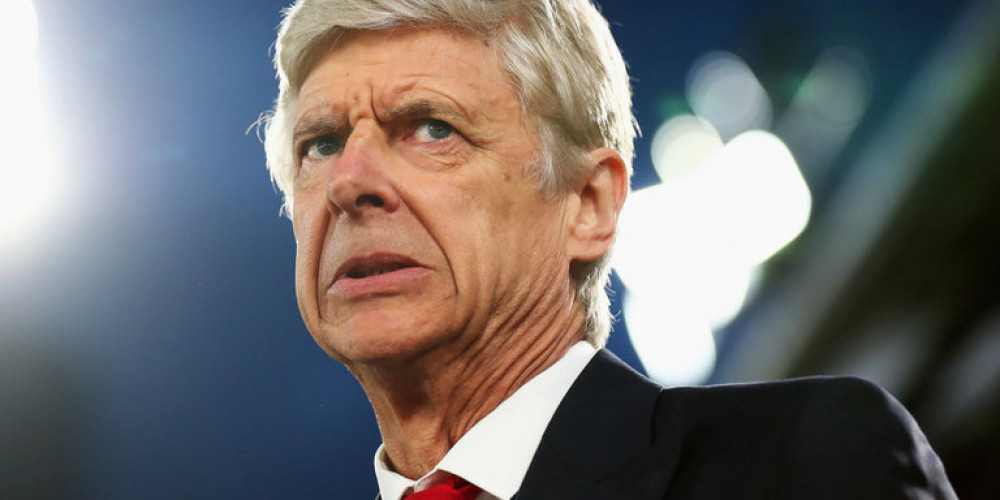The enigma that is Arsène Wenger

(Photo credit: Sky Sports)
Arsène Wenger is the most successful foreign manager ever in the English Premier League. He has been at Arsenal Football Club for 21 years, in which time he has clocked up 16 trophies. His brand of football is, at its best, breathtaking: fast-flowing, creative, highly technical soccer. Even fans of rival teams acknowledge the sheer beauty of Arsène’s Arsenal on song. He won the league and FA Cup double in his first season; and in 2003/04 his team, labelled “The Invincibles”, went an entire season unbeaten – an unprecedented feat.
Wenger has just won the FA Cup again. And he has just been offered a new two-year contract by the Arsenal board. Could anything be wrong with this picture?
Despite everything I’ve written above, the Arsenal fan base is deeply riven by Arsène’s contract extension. Many fans have been campaigning relentlessly all season for the manager to go, flying planes with ‘Wenger Out’ banners over stadia where Arsenal are playing; and running vicious social media tirades against the venerable leader.
Are these just youthful ingrates, too young to appreciate the remarkable accomplishments of Mzee Wenger?
A closer look at Wenger’s record reveals the problem. It is a ‘game of two halves.’ The manager amassed 3 league titles and 4 FA Cups in his first 10 years at the club. No one doubted his greatness then – it was one of the best trophy hauls in history. In 2006 he led his team to a majestic new ground, the Emirates Stadium. Arsenal seemed set to conquer the wider European stage and go from strength to strength.
It never happened.
In the end, nearly 70 per cent of his trophies have come from those first ten years. The club then endured an astonishing run of nine years without a single trophy. More recently, some cups have come – but not the league or European titles the club’s manic fan base craves. Arsenal have often looked one-dimensional and lacking in spine in key games. They have formed a habit of capitulation at crucial moments. Wenger became extremely averse to splashing money on big-name players, and increasingly stubborn about changing his ways.
This season, the club failed to qualify for the prestigious European Champions League for the first time in Wenger’s reign. Many fans thought the end was nigh – but no, the Arsenal board awarded Wenger a new stay. Partly this is because of the unseemly commercialisation of the modern game: Wenger delivers just enough success with just enough outlay to ensure the club’s owners make money in the new ways: through television rights, merchandising, and selling players on for a profit. No matter what impatient fans thought, Wenger was going nowhere. He enjoys remarkable clout over the board – and he showed it.
Many fans now fear the worst: that the pattern of recent decline will continue under their obdurate manager and that it will become irreversible. Some optimists pray that the manager is only one or two signings away from recovering his former greatness. I fear that the media scrutiny of every signing and fan outrage over every slip-up will only amplify. Wenger is on a hiding to nothing. Perhaps he will prove this wrong – but the signs are not propitious. The smirks and celebrations of the fans of rival clubs when Wenger’s extension was confirmed said it all…
There is a leadership lesson here. There is, as the Bible always reminds us, a time for everything. Arsène Wenger had a remarkable first ten years. Had he left soon after, he would have held an astonishing place in football history. But he seemed to get high on his own supply thereafter, equating himself with the club, believing only he could rescue matters, imagining that he was only one season away from winning big again.
No one should be bigger than an institution, not even the person who made the institution great in the first place. Our job in this life is to create great things and then hand over the mantle and fade away, leaving others to build on the foundation laid down.
The handing over and the fading away are difficult things to do, however, and only the wisest pull them off. If you are in that position, remember this: unfairly, the world rarely measures you over the entirety of your tenure. Most often, the final phase is what sticks in the collective memory and becomes the abiding impression. Don’t make your final lap the worst one; let go before they have to let you go.
(Sunday Nation, 4 June 2017)

Buy Sunny Bindra's new book
The X in CX
here »
Popular Posts
- Where are you rushing to—your funeral?June 29, 2025
- How to spot a real thinkerJune 15, 2025
- Built the app, forgot the flowJune 22, 2025
- The map will appear—once you start walking.July 6, 2025
- The pause that saves usJune 8, 2025















